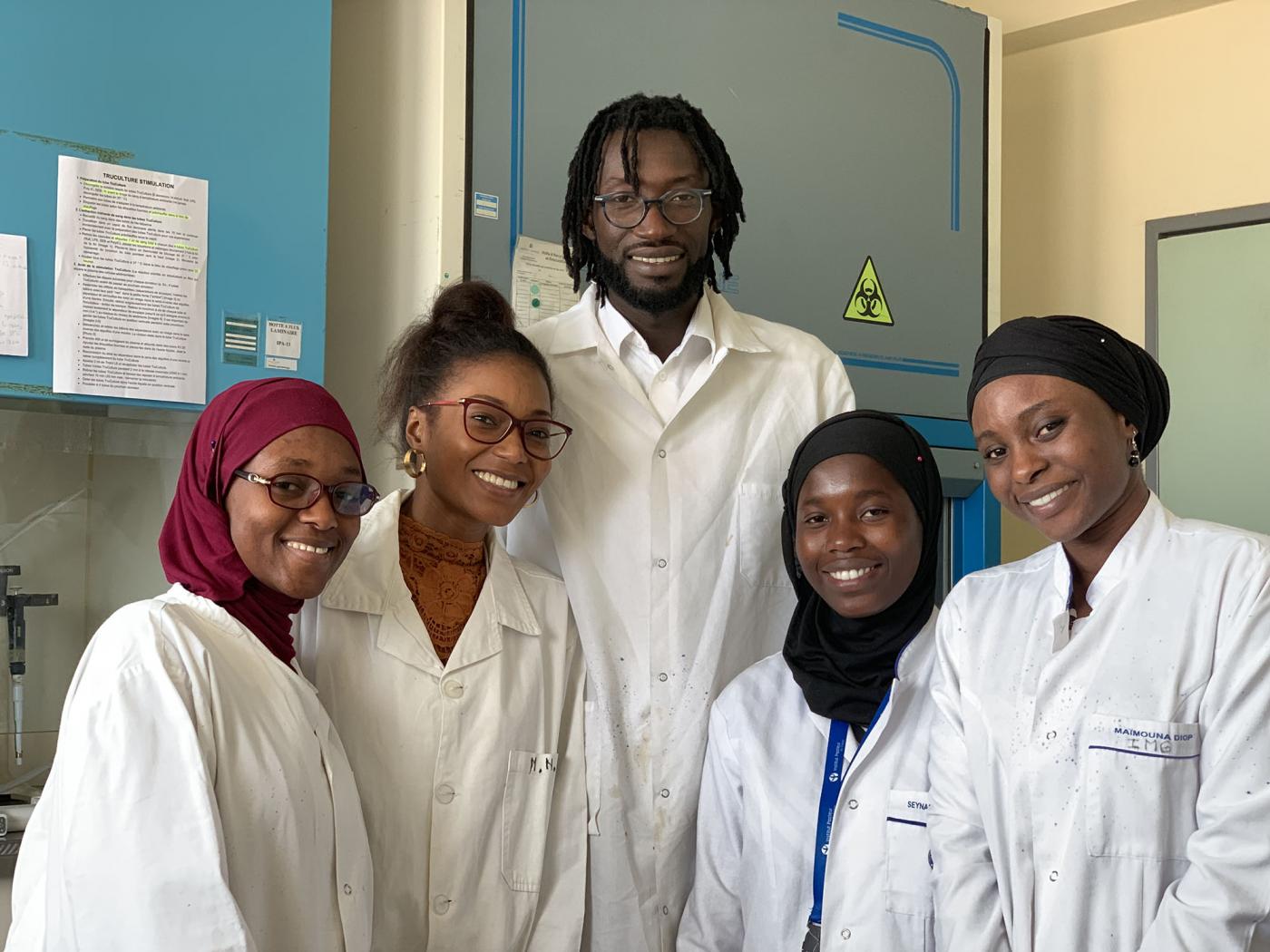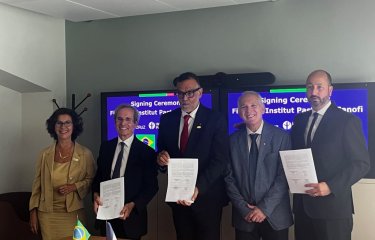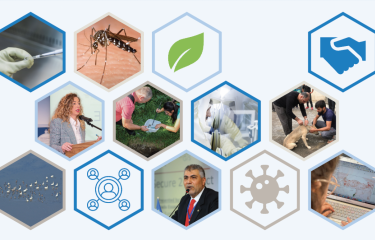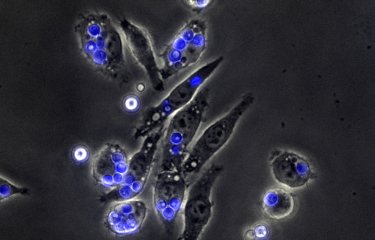A new 4-year research group (G4) is being set-up at the Institut Pasteur de Dakar and started in early February following the agreement signed between the Institut Pasteur and AUF (Agence universitaire de la francophonie) on 31 January 2019, in collaboration with the Yale School of Public Health. Entitled « Malaria Experimental Genetic Approaches and Vaccines », it will be led by malaria researcher Dr Amy Kristine Bei, an Assistant Professor at the Yale School of Public Health. The objective of this 4-year research group (G4) is to understand the interaction between parasite diversity and immune selection, and use this knowledge to help guide the prioritization of strain-transcending vaccine candidates.
Jointly financed by Institut Pasteur and AUF (Agence Universitaire de la Francophonie), this G4 will focus on two complementary aspects of malaria research applied to vaccine-candidate discovery and development. First, to use very highly standardized ex-vivo erythrocyte invasion assays to test monoclonal antibodies on blood-stage parasites that are circulating and contributing to disease in Senegal. The objective is to better understand how the parasite diversity influences immune responses and to identify naturally acquired neutralizing antibodies.
Senegal is indeed an ideal setting to do this. In the past years, malaria transmission has dramatically declined in many parts of the country leading to a limited number of circulating types of parasites. The monogenomic infections present in most individuals make genotype-phenotype association studies highly feasible. However, by working in different regions representing low, medium, and high endemicity, the full sprectrum of parasite diversity can be captured and phenotypically studied.

Dr Amy Kristine Bei, G4 "Malaria Experimental Genetic Approaches and Vaccines "
If we can identify targets that are cross-protective across the range of genetically diverse parasites, that would be extremely helpful for vaccine development
Copyright: Flora Mutere-Okuku/The Technical University of Kenya
The second approach leverages the recent renaissance in genomics and experimental genetics to create a panel of transgenic parasites lines reflecting the genetic diversity observed in Senegal, and globally, in key vaccine candidate antigens. These strains can be used to test how naturally-acquired or vaccine induced antibodies are able to block diverse parasite strains. The goal is to identify which polymorphisms in vaccine targets contribute to immune evasion and to identify combinations of alleles which are the most broadly protective.
« Up to now, malaria strain diversity has been one of the major hurdles limiting the progress of an effective vaccine » explains Dr Amy Kristine Bei, « we really want to assess the impact of this diversity at a much earlier stage in vaccine development to prioritize vaccine candidates that will be strain-transcendent ».

Dr Amy Kristine Bei team
Crédit: Amy Kristine Bei / Institut Pasteur de Dakar
Since 2011, Dr Bei has been based in Dakar where she did her post-doctoral research at the University Cheikh Anta Diop and Le Dantec Hospital through the Harvard Malaria Initiative. But her cooperation with Senegalese researchers started few years before during her PhD studies. « I have been involved in a long-standing capacity building and training collaboration between Harvard and Senegal in which novel molecular, phenotypic, and genotyping techniques are brought to the field and implemented so that we can study the disease dynamics in detail, and in real-time together with our talented Senegalese colleagues».
As a PhD student, Dr. Bei realized the importance of language in the success of her research. She recalls, « I requested that Harvard start a Wolof language course. The first year, we were only three but now the course is very popular with multiple levels being offered each year ». Being fluent in the Wolof language is incredibly important for the success of her work as it facilitates interactions with study participants and staff and also integration in the country. « My current goal is to improve my French to a high level of academic fluency so that I am able to teach courses at the university » she declares.
The 4-year research group program has started in 2013 in order to identify and help young high-quality scientists to develop ambitious research projects within the Institut Pasteur International Network. Since the program was launched, 5 groups have been created in Africa and South-Asia. Recently, two new groups have been also created in China and in Brazil.





